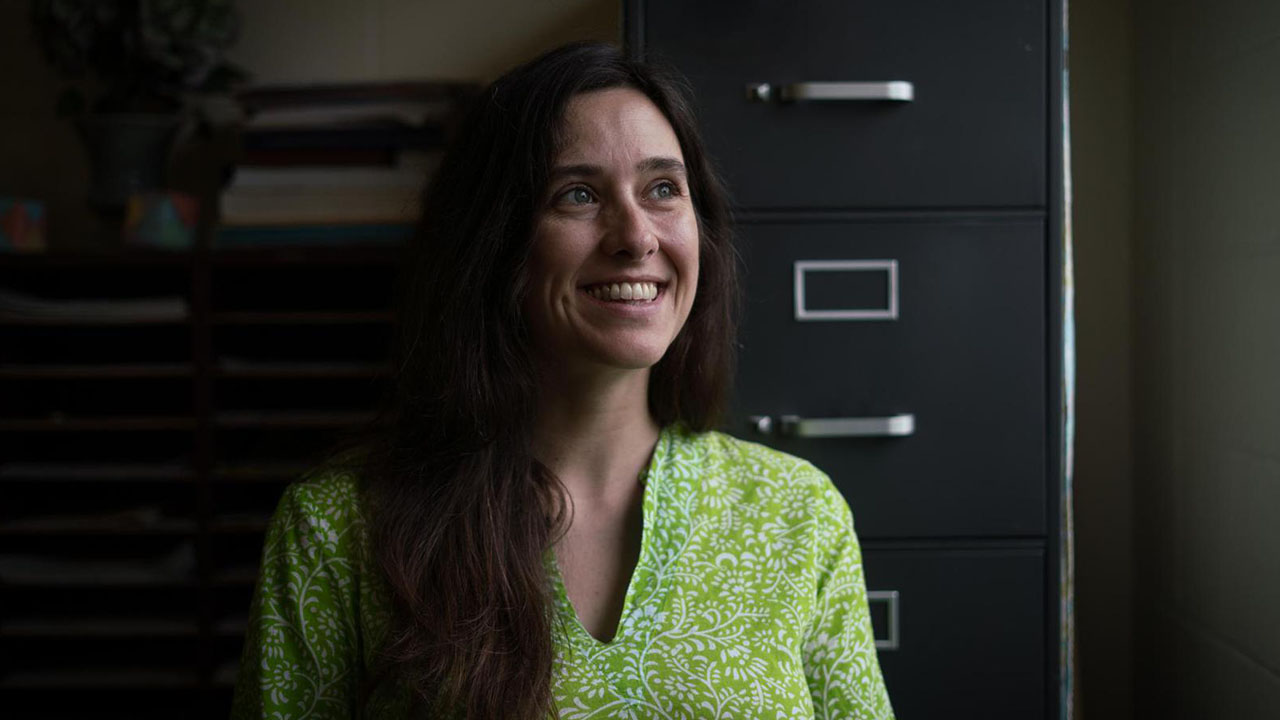
A chance meeting with a high school math teacher led Dr. Holly Attenborough to pursue the field of mathematics. She joined the University of Wisconsin-Platteville in 2013 as assistant professor of mathematics, and has already earned several recognitions, including the 2018 UW-Platteville Early Career Faculty Award for Teaching Excellence and the 2017 UW System Wisconsin Teaching Fellow Award.
What inspired you to pursue the mathematics field?
When I was in high school, I wanted to be a medical doctor. In my junior year, I took a physiology course, but I didn’t like it. This sent me into a bit of a frenzy, because how was I going to be a doctor if I didn't enjoy the coursework? I went to consult with my physiology teacher, who happened to be having lunch with my math teacher at the time. I asked the physiology teacher what I should do about this internal conflict, to which my math teacher responded, "Why don't you study math?"
I didn't know I could do such a thing. I thought I had to have everything mapped out from the beginning: I will do X career, so I should study Y. I hadn't thought about studying something simply because I enjoyed it. I spent some time ruminating on my teacher's question and enrolled in calculus for my senior year in high school. I was enjoying the course so much that I realized that my math teacher was on to something, so I applied to colleges with the intention of being a math major.
As I studied mathematics, I came to enjoy the critical and abstract thinking more and more. So, I kept studying more and more mathematics, obtaining a Ph.D. in the field. I often joke that I had liked the sound of "Dr. Attenborough" so much while I was considering medical school that I decided to study mathematics until I became "Dr. Attenborough."
What inspired you to pursue teaching and what do you enjoy most?
While I was in graduate school, I taught one course a semester as part of my graduate assistantship. So, at first, teaching was merely a necessary part of my continued mathematics education. But while doing so, I discovered that I greatly enjoyed teaching. I love math and I enjoy helping people and teaching nicely aligns with those interests.
My favorite moments of teaching are the "aha" moments. There is a lot of abstract thought necessary in forming a solid foundation of understanding and doing college level mathematics. But once you truly understand what is being done, then it all fits together in a beautiful jigsaw puzzle. It can be easy to approach math in a less efficient manner: trying to memorize every little detail and hoping that the problems you see in the future look exactly like the ones you've memorized. But this, unfortunately, leads people astray and misses the larger picture in math. There is this amazing logical framework of math. If you can get to the point where it makes sense to you, then you are no longer memorizing and hoping, you are truly doing mathematics as you work through problems using your developing intuition as a mathematical thinker. So, when a student transitions from memorizing and hoping to understanding and doing, that is an "aha" moment.
These are complicated subjects that you teach. What is the secret to your success in the classroom and keeping students engaged?
Being engaged myself. I'm there with the students wanting to give them the opportunity to deeply understand the subject material. It also helps that I have a great reverence for the subject material. I often contemplate how lucky I am to get to discuss something I find incredibly interesting with people daily.
Through your work in the Mathematical Association of America’s Section NExT-Wisconsin and the Wisconsin Teaching Fellow program, you have spent a lot of time focused on scholarship of teaching and learning research. Why is that important and of interest to you?
The desire to have my students truly understand the mathematics presented in the classroom has led me to continually look for and develop new activities to improve student engagement and increase active learning. This natural compulsion of mine leads very naturally to the scholarship of teaching and learning research.
I also find it important to be a part of a community of teachers loving what they do, but also wanting to do it better. Moreover, the teachers in these communities want to have “do it better” well defined. And that is where the scholarship of teaching and learning plays a big role, ensuring implementation of research and evidence-based best practices in the classroom. Scholarship of teaching and learning combines mathematics, research, teaching, and rigor – all things for which I have great respect.
What do you hope students take away from your classes?
Critical thinking skills. There's a great website, weusemath.org; it profiles many different professions that use mathematics. There is a section of each profile called, “When Math is Used." These professions require different math courses, but the overall theme of when mathematics is used by the professional is when they use the training developed in those courses to think like a mathematician. It is this rewiring of the structure of our brain to think abstractly, logically and critically that is the most useful skill gained from studying math.
To nominate someone for the Pioneer Spotlight, contact pr@uwplatt.edu.